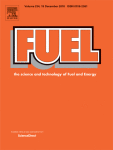Ver ítem
- xmlui.general.dspace_homeCentros Regionales y EEAsCentro Regional Mendoza - San JuanEEA La ConsultaArtículos científicosxmlui.ArtifactBrowser.ItemViewer.trail
- Inicio
- Centros Regionales y EEAs
- Centro Regional Mendoza - San Juan
- EEA La Consulta
- Artículos científicos
- Ver ítem
Characterization of cardoon accessions as feedstock for biodiesel production
Resumen
Diesel fuels have an essential function in industrial economies. In the last decade, several studies were conducted
in order to find alternative sources of vegetables oils suitable to biodiesel conversion. The present work aimed to
characterize the oil chemical composition in eleven different accessions of domestic and wild cardoon (Cynara
cardunculus L. var. altilis and var. sylvestris, respectively) in order to evaluate its putative use as an
[ver mas...]
Diesel fuels have an essential function in industrial economies. In the last decade, several studies were conducted
in order to find alternative sources of vegetables oils suitable to biodiesel conversion. The present work aimed to
characterize the oil chemical composition in eleven different accessions of domestic and wild cardoon (Cynara
cardunculus L. var. altilis and var. sylvestris, respectively) in order to evaluate its putative use as an alternative
energy crop, with main focus in biodiesel production. No significant differences were measured between both
botanical varieties for oil content; values of 20.80 ± 6.65% were found. The highest values were observed for
the wild cardoon accessions “Uruguay Centro” (35.95%) and “Pergamino” (27.78%). The fatty acid composition
was similar for both botanical varieties: palmitic (10.9%), stearic (3.0%), oleic (23.5%) and linoleic (61.3%).
Comparing with traditional energy crops (soybean, sunflower and rapeseed) the cardoon fatty acid profile is
similar to those obtained for soybean. Several biodiesel quality parameters were calculated or estimated over
different oil samples. In this way, the acidity ranged from 0.1 to 0.7 mg OH/goil, showing differences among
accessions but not between botanical varieties. “Cardo Blanco Peralta” and A-41 (cultivated cardoon) presented
the lowest unsaturated degree, iodine values and oleic/linoleic acid relation in their oil; consequently, they
showed the most suitable values for the biodiesel quality parameters (cetane number and kinetic viscosity).
Based on seed oil composition, this characterization, allowed demonstrating that cardoon oil has appropriate
characteristics to be used as feedstock for the production of biodiesel, as well as, to detect accessions with
superior quality properties.
[Cerrar]

Autor
Mancini, Micaela;
Lanza Volpe, Melisa;
Gatti, Bernardita;
Malik, Yair;
Moreno, Ana Carina;
Leskovar, Daniel;
Cravero, Vanina Pamela;
Fuente
Fuel 235 (1) : 1287-1293. (January 2019)
Fecha
2018-08-27
Editorial
Elsevier
ISSN
0016-2361
Formato
pdf
Tipo de documento
artículo
Palabras Claves
Derechos de acceso
Restringido
 Excepto donde se diga explicitamente, este item se publica bajo la siguiente descripción: Creative Commons Attribution-NonCommercial-ShareAlike 2.5 Unported (CC BY-NC-SA 2.5)
Excepto donde se diga explicitamente, este item se publica bajo la siguiente descripción: Creative Commons Attribution-NonCommercial-ShareAlike 2.5 Unported (CC BY-NC-SA 2.5)

